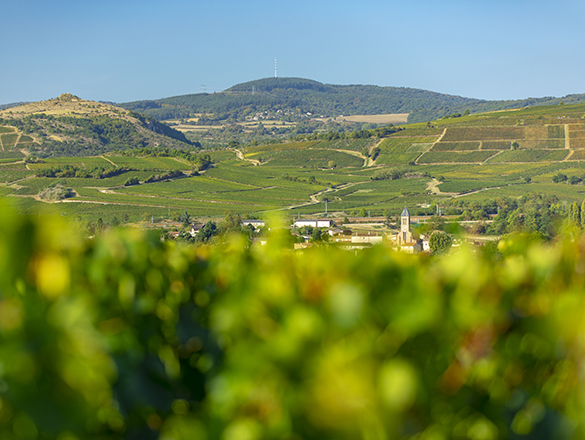
The vineyards of Bourgogne produce some great wines with a historical and international reputation. However, the region is not simply limited to its iconic appellations. In addition to its Village Premier Cru and Grand Cru AOCs, it also produces a range of wonderful Régionale and Village appellations to explore.
You will also find a full list of the Bourgogne’s Climats and lieux-dits on this page.
Check out the complete list of the 84 Bourgogne appellations.
However, your exploration has only just begun. Bourgogne wines have never before offered such high quality. Besides our range of internationally celebrated wines, try some of our lesser-known appellations where there are lots of surprises in store.
And for a fun way to find out more about the wines on offer, try out our “Which Bourgogne wine is right for me?” quiz, or check out Bourgogne Maps to take an interactive tour of the region.
Regional Appellation
VIGNOBLE DU MÂCONNAIS
31 juillet 1937
Whites - Chardonnay.
Reds and rosés - Gamay.
Area under vine:
Whites: 24.17 ha
Reds and rosés: 1.10 ha
Annual harvest:
Whites: 178,899 bottles
Reds and rosés: 6,080 bottles
Source: 5-year average, 2017-2021
An additional geographical denomination that is part of the Régionale Mâcon appellation in the Mâconnais. According to the 2005 specifications rules, the name Mâcon-Prissé refers to white, red, and rosé wines grown within a defined area in the village of Prissé.

The whites have a pale gold color with hints of green in their youth, and a character that is more discreet than that of its more northerly neighbors.
They offer delicate aromas of tree blossom and garden flowers like lily, highlighted with a few spicy notes of saffron. In the mouth, the attack is forthright, offering a lovely balance between a rich chewiness, a distinct fattiness, and some fairly remarkable tension.

Located in the middle of the plain of the Petite Grosne river, the terroir of Prissé sits astride the Saint-Véran and Mâcon-Prissé appellations. The vines grow on the flattest areas closest to the river. Prissé is another important village in this area closely connected to local poet Lamartine.

The vineyards of the Mâcon-Prissé appellation are scattered at between 210 and 220 meters above sea level across flat land towards the hamlet of Chevigné, or on the slightly sloping land of Mont de Milly (240 meters above sea level) and along the valley of the Petite Grosne, and that of its tributary, the Moulin Journet stream.
The vines emerge from the silt of the Petite Grosne on terraces of old alluvial sediment from the Secondary era, with clay-loam on the surface and in parts with pebbly residue.
